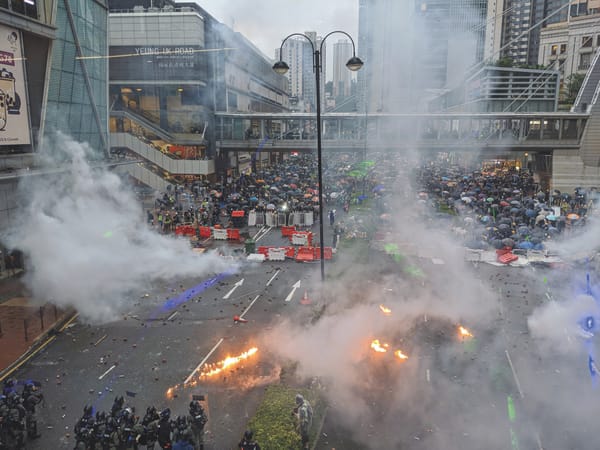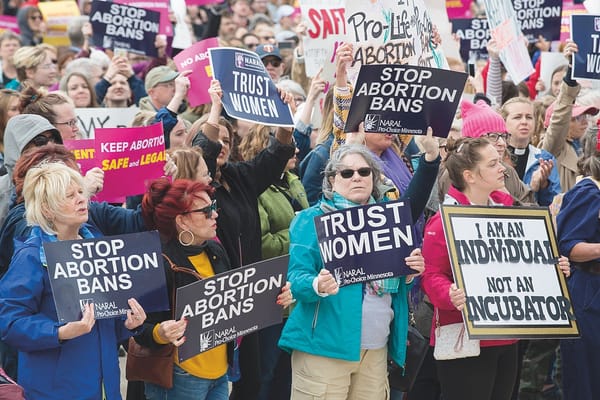RE: “An opinion on the Hong Kong issue” – a Reality Check
An anonymous writer’s outraged response to last week’s Comment article on the ongoing Hong Kong Protests

Have you ever read a piece of writing so factually inaccurate that you feel physically compelled to reply to it? That was the exact scenario in which I found myself after picking up a copy of Felix last Friday afternoon.
The article in the 1ST of November issue called ‘An opinion on the Hong Kong issue’ initially thrilled me as I was glad to finally see some coverage on this ongoing issue. However, as soon as I read past the title, it was all downhill from there.
The writer introduced the Extradition Bill that the Hong Kong government tried to enact on the people (on China’s behalf) – an act that resulted in more than two sevenths of the entire population on the streets protesting. Had the bill passed, it would have had detrimental consequences on the freedom of all Hong Kongers, giving China the power to extradite anyone in Hong Kong to be judged under the Chinese legal system which many organisations, such as Amnesty International, have expressed concerns about due to their repeated violation of the defendants’ rights to a fair trial.
In paragraph 3 of the article, the writer stated that “the Hong Kong police have been markedly restrained in the face of blatant violence by the protesters” – a severe disinformation easily disprovable by simple acts of Googling. Instances of unnecessary violence from the Hong Kong police happened far too often to be counted, but an incident that immediately comes to mind is what happened on the night of the 31ST of August.
Known as the ‘831’ incident, the police charged into the Prince Edward underground station in pursuit of the protestors trying to go home. This turned into one of the most horrific conflicts between the police and the citizens, in which several men and women, including teenagers, were trapped in an underground carriage, senselessly beaten and pepper-sprayed by the police. No arrests were even made afterward, showing that the police felt no need for the scrutiny of law, just the need for violence in an attempt to silence those who disagree with the system.
Not only have the protesters been caught in the scurry of excessive police violence, so have the volunteers and journalists on the scene. On the 11TH of August, a medic was shot with a beanbag round in the eye, shattering the bones of her face. On the 29TH of September, an Indonesian journalist was permanently blinded by a rubber bullet. These are just a tiny fraction of cases in the overwhelming plethora of unjust violence committed every day by the Hong Kong police force.
The writer then said, “I could have sympathised with the protestors had they not shown such disrespect toward their country: stamping, burning the Chinese flag” – in what reality is respect towards a flag a greater issue than one’s future and freedom?
In the same paragraph: “Most of us view social and economic stability as a precursor to the extra freedom held as sacred in the West”. Freedom of speech is not ‘extra’; freedom of press is not ‘extra’, freedom of assembly is not ‘extra’; they are fundamental human rights. Those who hold a different view should not be pushing their agenda onto others, which is exactly what China tried to do to Hong Kong with the Extradition Bill and will continuously do so unless something is done about it.
Also, “foreign interference” is deducted with negative connotations from “photographs of protest leaders with Western officials”. First of all, this protest is known to be leaderless – one of the reasons why all Hong Kong Protesters were chosen by TIME to be one of 2019’s most influential people on the internet. Secondly, to quote Martin Luther King: ‘Injustice anywhere is a threat to justice everywhere’. It is in human nature to right what is wrong. It is also in human nature to seek help and to help. And that is the reason behind both the leaderless-proactivity from the Hong Kongers and the bipartisan support from the US Congress for this pro-democracy protest.
Paragraph 8 states: “Anyone who is familiar with the Basic Law and its complexities can see that Hong Kong is an indivisible part of China.” What the writer failed to mention is that later on in the very same set of laws, it is promised that the Chief Executive of the Hong Kong government shall ultimately be elected by the people with universal suffrage. That could not be further from the political system in Hong Kong right now. The people only want as much - for everyone to have the basic right to choose their own leader, for everyone to have the basic right to vote. It seems ironic that the writer accuses those with opposing views of unfamiliarity with the Basic Law when they themselves merely cherry-picked a section that supported their own view.
On top of all the censorship and police violence, Hong Kong’s democracy is also being ever-corrupted by puppets of the Chinese Communist Party. Joshua Wong, the founder of the pro-democracy activist group Scholarism and the secretary-general of the political party Demosistō, was recently banned from running in the upcoming district council election. This is a clear obstruction of political freedom and, again, a step in further taking away the self-determination of all Hong Kongers.
When the police resort to murder, who do you call? When your government turns on you, who do you rely on? When your democracy is being taken away from you, you must take a stand.








